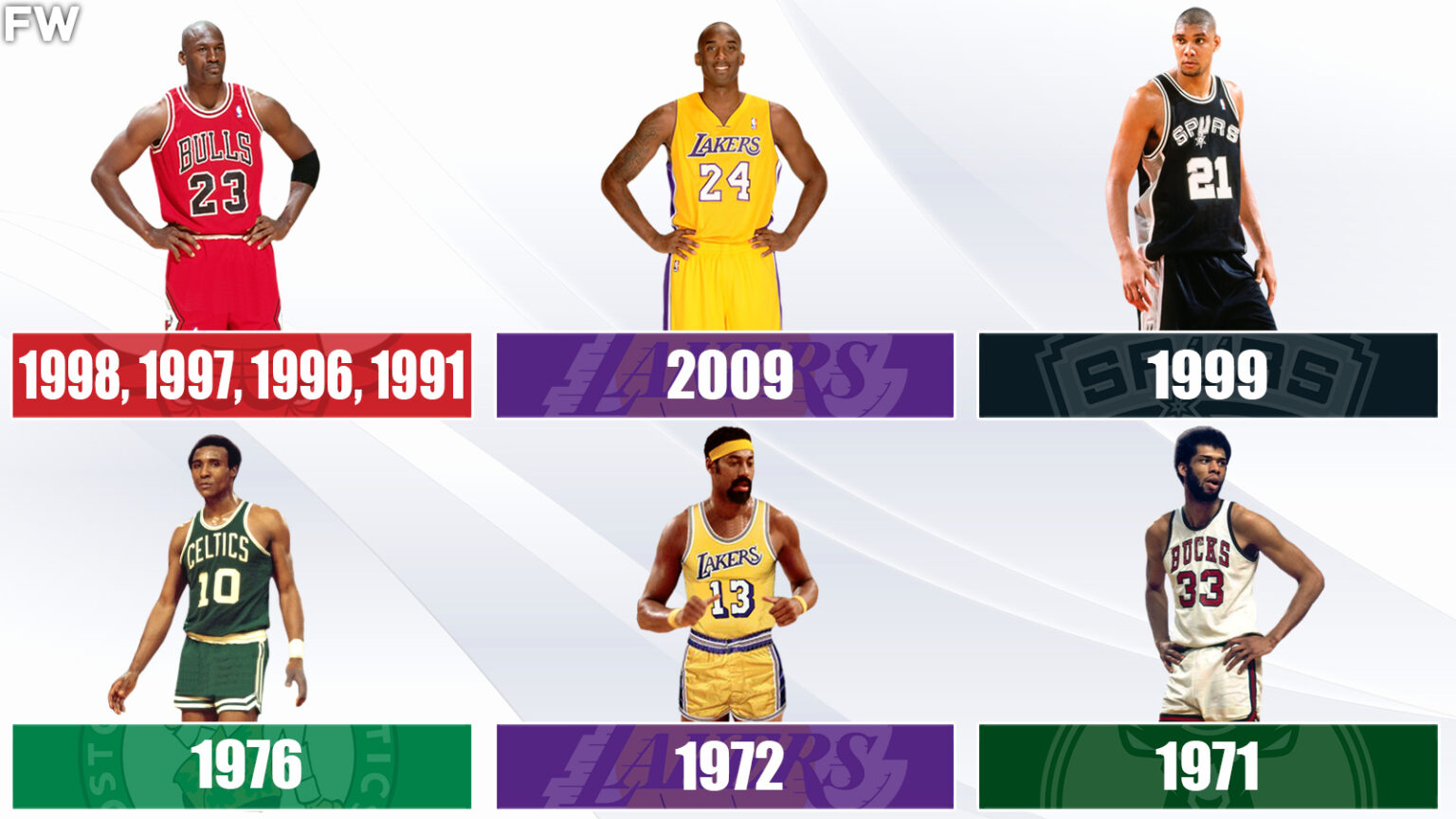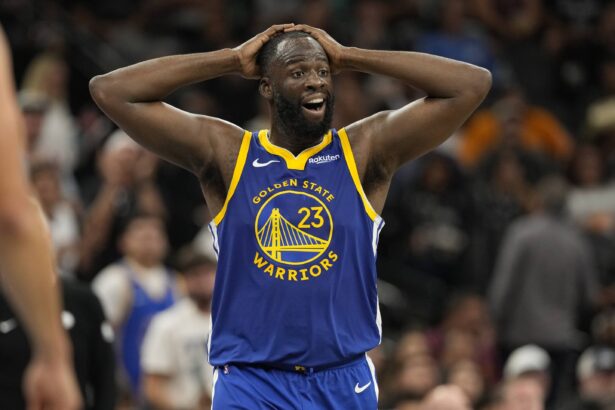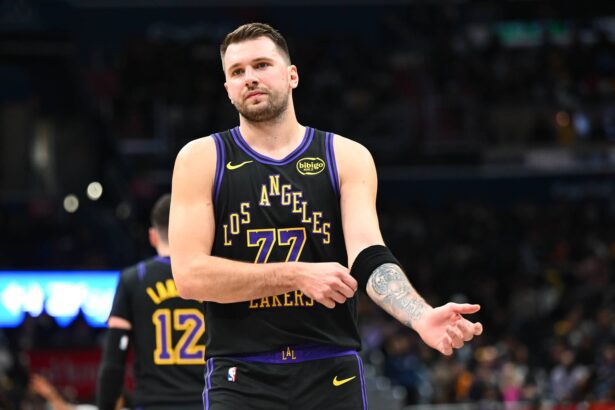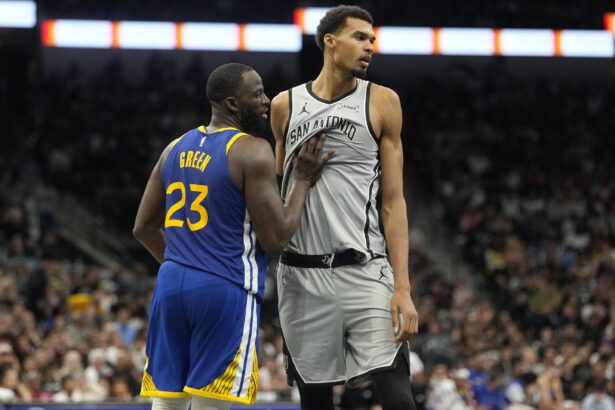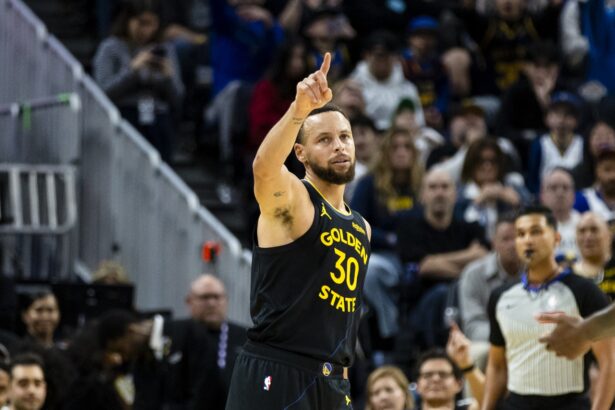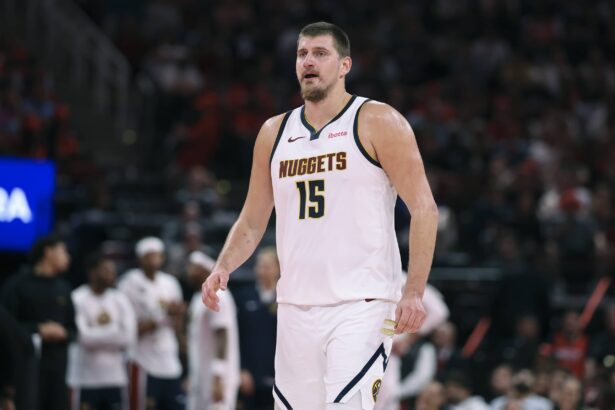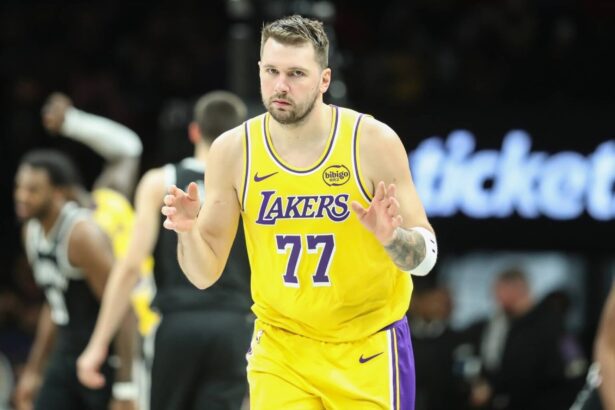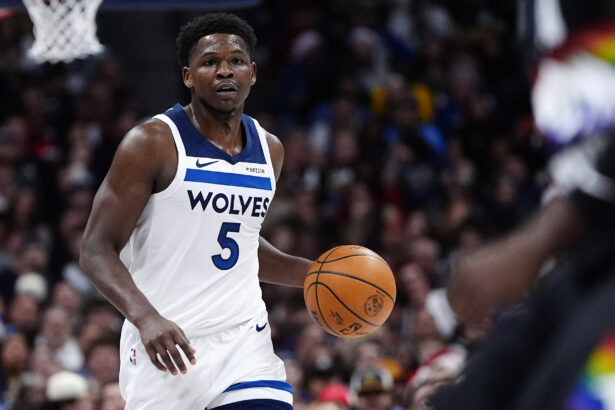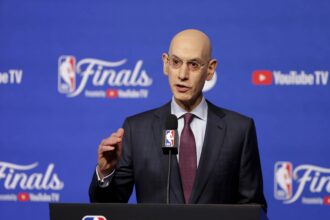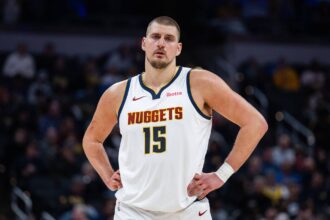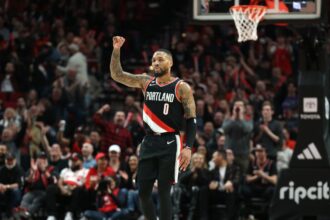Over the last 10-15 seasons, the phenomenon known as load management has been one of the hottest topics of conversation among NBA fans, media, players, and owners. Players are more willing than ever to sit and protect their health for the long term, just as teams are more willing to protect their stars and sit them for games they see fit. Due to this movement within the NBA, the grind of playing all 82 games in a season and then appearing in every playoff game after that has become obsolete. Almost no superstars play all 82 games anymore, and the players that do certainly aren’t MVP or Finals MVP candidates.
Things were not always this way in the NBA. As you saw not long ago, we discussed the NBA players who played all 82 games in a season while being named MVP. The NBA players you will see below took it one step further. Not only did these players appear in all 82 games during the regular season, but they then played every playoff game while leading their team to an NBA championship and capped it off with a Finals MVP award. Only six players in NBA history have ever pulled off this feat, and only one of those six ever did it more than once. This speaks to not only the greatness of each player but of their desire and determination to leave it all on the court in pursuit of basketball immortality for themselves and their teammates as well.
These are the only Finals MVPs in NBA history to play every game that season.
Kareem Abdul-Jabbar
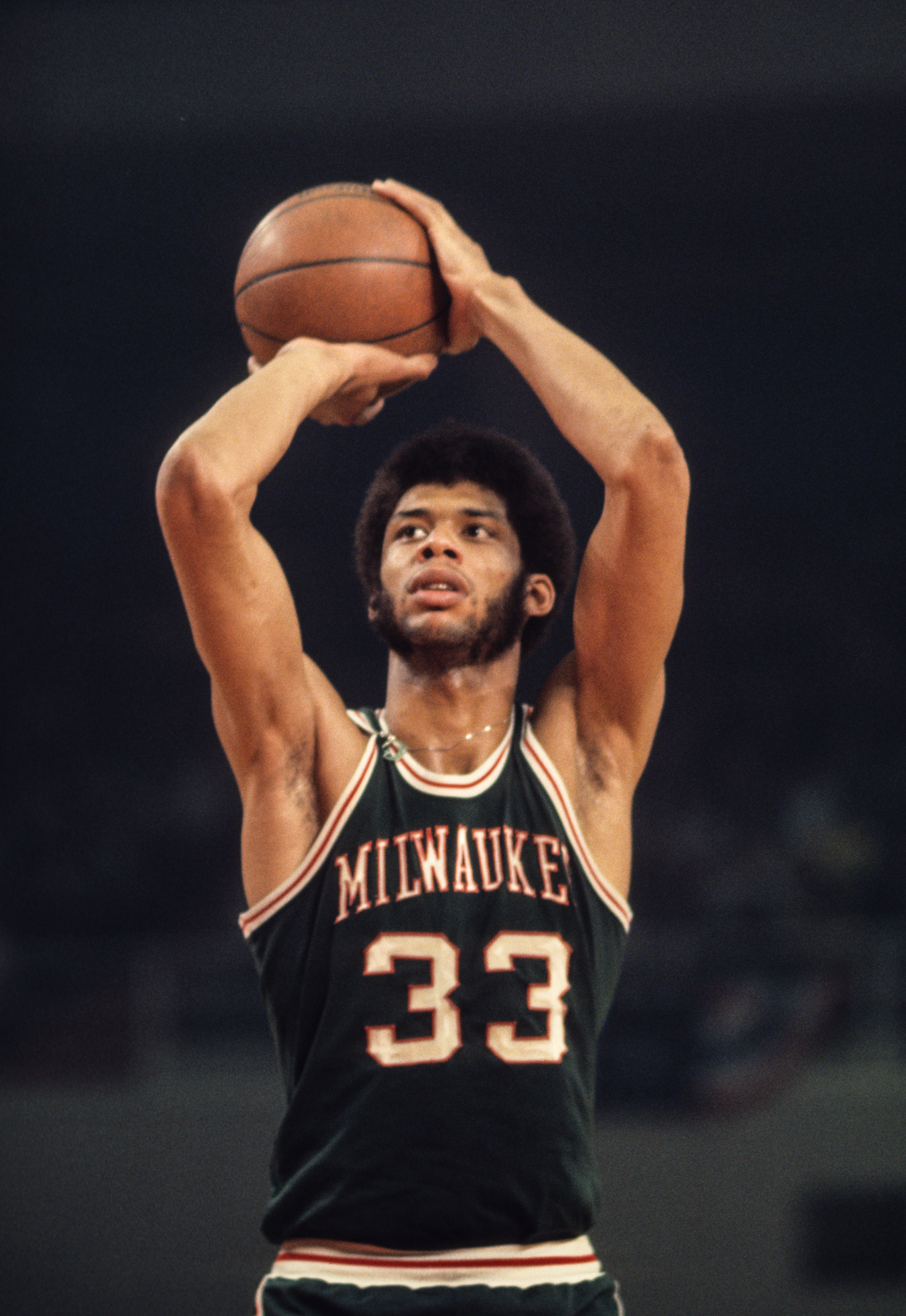
Year: 1971
1971 Finals MVP Stats: 27.0 PPG, 18.5 RPG, 2.8 APG
For Kareem Abdul-Jabbar, the 1970-71 season was as special as any in his 20-year NBA career. It was just his second season in the NBA as he came off a stellar rookie season that saw him average 28.8 PPG and 14.5 RPG while bringing home the Rookie of the Year award. In 1970, the Bucks would add Oscar Robertson to their roster, building a trio of him, Kareem, and Bob Dandridge that would prove to be lethal. Kareem would lead the NBA in scoring with 31.7 PPG while grabbing 16.0 RPG and winning the first of his NBA-record six career MVP awards.
After winning MVP, Kareem, and the Bucks, head into the playoffs with a 66-16 record for the season. They would defeat the San Francisco Warriors in five games in the first round and the Lakers in five games in the Conference Finals as well. This set up a date with the Washington Bullets, led By Wes Unseld and Earl Monroe, in the NBA Finals. For the Bucks, they made easy work of the Bullets in four games as Kareem was named Finals MVP, averaging 27.0 PPG and 18.5 RPG over the course of the series. Robertson and Dandridge each contributed over 20.0 PPG as well.
Wilt Chamberlain
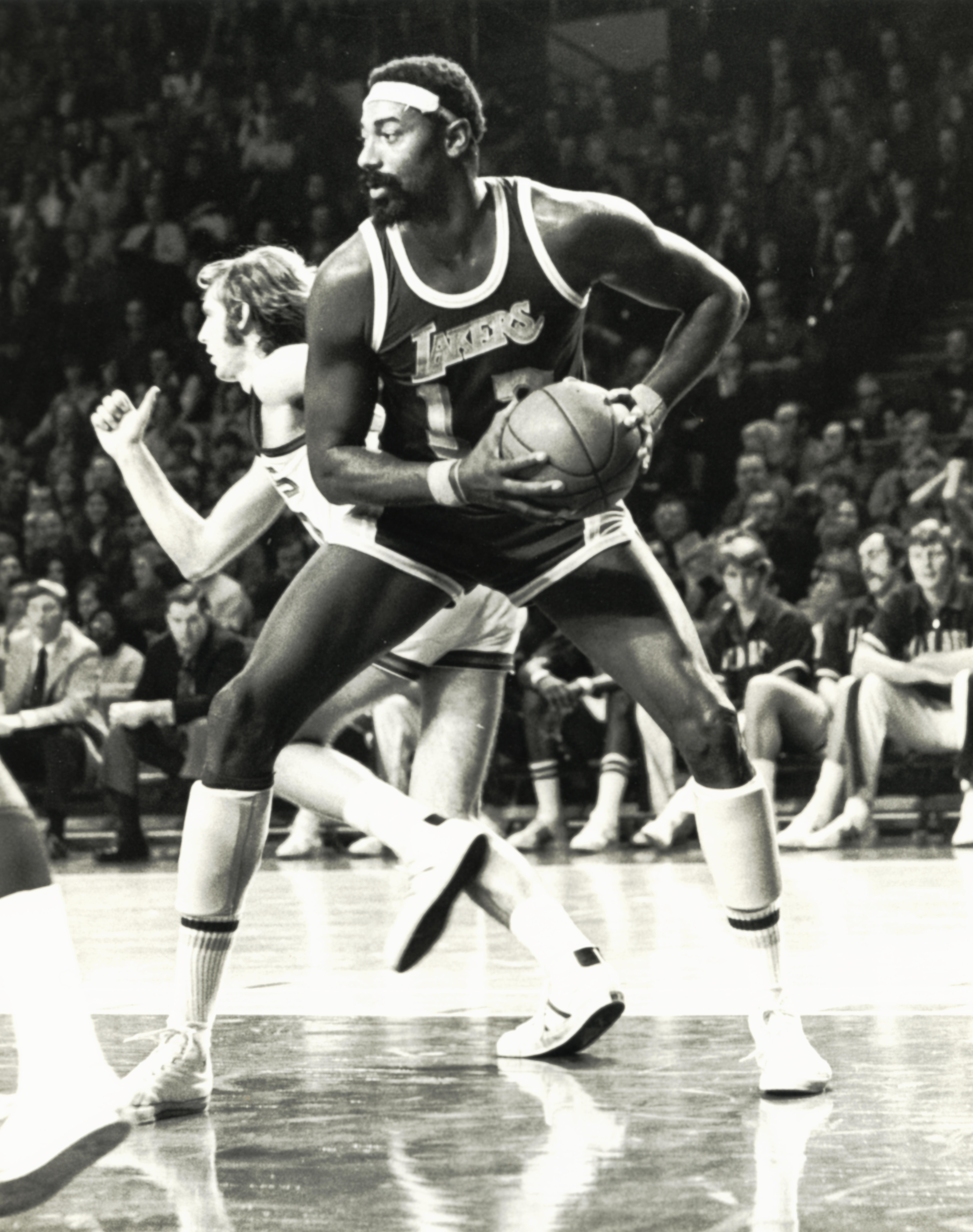
Year: 1972
1972 Finals MVP Stats: 19.4 PPG, 23.2 RPG, 2.6 APG
It didn’t take long for someone to repeat the accomplishment that Kareem had completed in 1971. The 1971-72 season looked quite different from what fans were used to coming from Wilt Chamberlain, particularly on the offensive side of the ball. For the first time in his career, Chamberlain would average under 20.0 PPG on the season, but he made up for it with his defensive effort and 10th career rebounding title with 19.2 RPG. The Lakers didn’t suffer any, considering they had plenty of offensive firepower from Jerry West and Gail Goodrich to make up for it and win 69 games.
The playoffs looked no different through the first two rounds as the Lakers swept the Bulls in round one and defeated the Milwaukee Bucks in round two. Chamberlain’s numbers were identical to the regular season as he went out and over 46.0 minutes per game on their playoff run. In the NBA Finals, Chamberlain and the Lakers met a familiar foe in the New York Knicks, who had defeated them two years prior in the Finals. This time, it would be Wilt and Los Angeles dishing out the loss as they took care of New York in five games. Chamberlain would be named MVP, averaging 19.4 PPG and 23.2 RPG on 60.0% shooting. Unsurprisingly, Chamberlain led the Lakers in minutes played with over 47.0 logged per game, just as he had led the NBA so many times before.
Jo Jo White
Year: 1976
1976 Finals MVP Stats: 21.7 PPG, 4.3 RPG, 5.8 APG, 1.5 SPG, 0.0 BPG
The 1975-76 season marked the seventh season of Jo Jo White’s career with the Boston Celtics. Up to that point, White had been one of the most consistent point guards in basketball and a five-time All-Star with the Celtics. In those five All-Star seasons, he averaged 20.1 PPG, 4.7 RPG, 5.5 APG, and 1.4 SPG. In 1976, he would earn another All-Star appearance with Boston averaging 18.9 PPG, 5.4 APG, and 1.3 SPG, helping to lead Boston to a 54-28 record.
The Celtics would receive a first-round bye in the NBA playoffs and go on to defeat the Buffalo Braves and Cleveland Cavaliers in six games in each of the next two rounds to advance to the NBA Finals. Boston was set to take on the Phoenix Suns who were led by Paul Westphal and Rookie of the Year Alvan Adams. The Suns put up a real fight in the series, getting it to 2-2 before dropping each of the final two games and blowing their chances at their first NBA title. White led all scorers with 21.7 PPG while also leading in minutes played with 46.5 minutes per game over the course of the series. His efforts earned him the Finals MVP award and a spot toward the top of the Boston Celtics’ GOAT pyramid forever.
Tim Duncan*
https://www.youtube.com/watch?v=Mmk0HUlgQBE
Year: 1999
1999 Finals MVP Stats: 27.4 PPG, 14.0 RPG, 2.4 APG, 1.0 SPG, 2.2 BPG
As one of the greatest players in NBA history, Tim Duncan made a mark on the NBA throughout his 19-year career that few have matched before him or since. Despite the game evolving around him constantly, Duncan stuck to the fundamentals and mastered the parts of the game, such as defense and rebounding in order to help the San Antonio Spurs reach new heights with five NBA championships. The 1998-99 season is different from any other season on this list due to the fact that teams only played 50 games because of a lockout. Yet, Duncan took the opportunity in just his second season to deliver the Spurs franchise their first NBA championship.
Duncan would play all 50 games during the regular season at an average of 39.3 minutes per game. He averaged 21.7 PPG, 11.4 RPG, and 2.5 BPG during those 50 games and led the Spurs to a 37-13 record. With a full playoff schedule ahead, the Spurs went 11-1 over their first 12 playoff games to steamroll their way to the NBA Finals against the surprising New York Knicks. Duncan and the Spurs would drop just one game in the series to New York before wrapping things up in Game 5 with 31 points and 9 rebounds from Duncan. Duncan played all five games at an average of 45.6 minutes to claim his first of three career Finals MVP awards.
Kobe Bryant
https://www.youtube.com/watch?v=gRJjfmuKLRs
Year: 2009
2009 Finals MVP Stats: 32.4 PPG, 5.6 RPG, 7.4 APG, 1.4 SPG, 1.4 BPG
In 2009, Kobe Bryant was coming off his only career MVP season in 2008. This also happens to be the season that the Boston Celtics defeated Bryant and the Lakers in the NBA Finals so Bryant could care less about the MVP at this time. Kobe had just played every single game of the 2008 season in pursuit of an NBA championship, but failure at the end only pushed him harder. He decided to go for it again in 2009 and this time, in lieu of an MVP award, Kobe finally got what he wanted.
Bryant would play all 82 games of the regular season at an average of 36.1 minutes per game. He led the Lakers to a 65-17 record averaging 26.8 PPG on 46.7% shooting. In the playoffs, Kobe was business as usual, averaging over 30.0 PPG while leading the Lakers to their second straight NBA Finals appearance. Waiting for them in the NBA Finals was the Orlando Magic led by Dwight Howard. The Magic put up a valiant effort, but nothing was going to derail Kobe’s goal of proving the doubters wrong and finally delivering L.A. a championship after a 7-year drought. Kobe averaged 32.4 PPG, 7.4 APG, 1.4 SPG, and 1.4 BPG to defeat Orlando in five games and win the first Finals MVP award of his career.
Michael Jordan – 4 Times
https://www.youtube.com/watch?v=1AbIkcballk
Years: 1991, 1996, 1997, 1998
1991 Finals MVP Stats: 31.2 PPG, 6.6 RPG, 11.4 APG, 2.8 SPG, 1.4 BPG
1996 Finals MVP Stats: 27.3 PPG, 5.3 RPG, 4.2 APG, 1.7 SPG, 0.2 BPG
1997 Finals MVP Stats: 32.3 PPG, 7.0 RPG, 6.0 APG, 1.2 SPG, 0.8 BPG
1998 Finals MVP Stats: 33.5 PPG, 4.0 RPG, 2.3 APG, 1.8 SPG, 0.7 BPG
It goes without saying that Michael Jordan was a different animal than we are all used to covering in the NBA. Jordan played in all 82 games in a season nine times in his 15-year career and in at least 80 games 11 times. With a borderline psychotic obsession to win and dominate the game, Jordan became the most accomplished player in NBA history accomplishments-wise and the consensus greatest player that ever lived.
https://www.youtube.com/watch?v=rsNiCwlryIg
The first time Jordan would play every game in a season and lead his team to an NBA championship would be in the Bulls’ first trip to the NBA Finals in 1991. Jordan would lead Chicago to their first championship with a ridiculous series of 31.2 PPG, 11.4 APG, and 2.8 SPG. Jordan played all five games at an average of 44.0 minutes per contest. The next time Jordan would achieve this feat was during arguably the greatest season in NBA history. Jordan would lead the Bulls to an NBA-record 72 wins playing all 82 games winning MVP and leading the Bulls to their fourth NBA championship. He would also play all 18 playoff games averaging 30.7 PPG and playing 40.7 minutes per game.
Jordan would continue to play every game over the next two seasons as the Bulls completed their second three-peat as NBA champions of the 1990s. In 1997, Jordan would play a total of 101 games between the regular season and playoffs and in 1998, would play 103 games between the regular season and playoffs. What this means is that between 1996 and 1998, Michael Jordan played in 304 straight games between the regular season and playoffs, which resulted in two MVP Awards, three NBA championships, and three Finals MVP awards on that stretch. It is truly one of the most remarkable feats in NBA history.
https://www.youtube.com/watch?v=uJvvbqAnXKw
We sincerely appreciate and respect you as a reader of our site. It would help us a lot if you follow us on Google News because of the latest update.
Thanks for following us. We really appreciate your support.

